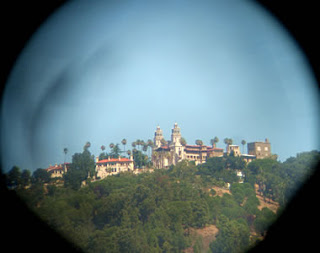During the long drive home, I still often find myself pondering on either the content that was learned, or perhaps thinking and brainstorming about the different pieces of upcoming journalism assessment. That was one of the standout aspects of JOUR1111, the assignments were interesting, practical and hands on. It challenged us, and our creativity, and once I had finished it, I felt accomplished. The feeling of being a journalist was becoming more real.
Over the semester, I have learnt a colossal amount of lessons and tips about life. It has allowed me to question, and to be skeptical about the things I am told, not just accept them from whatever source delivers it to me. Not only do I question the source, but I now question the motive, the target audience, the position that source has taken, the lengths to which has been taken in order to get that information and the reliability of that source. It has broadened my knowledge about the world, because it challenges me to interact with different news sources, different types of media, and to switch the social commercial station, to the public media one. My entire idea of what journalism is, and the work involved has completely changed through partaking this course. Even if I don't go on to become a journalist, I will no longer just envision them as those pesky people who bug famous people with a pen and a note pad. But instead I will envision them as hardworking, sacrificing, patient, clever, sourceful and hopefully moral people. There is so much more that goes into delivering a news story, or a photo, or an entertainment piece then what people assume. The journalists have to go out and capture the moment, to interpret the moment, and to successfully convey that moment to it's audience. They are risking everything, risking ridicule, their career, their relationships and even their lives to deliver the stories to us.
I have thoroughly enjoyed the fortnightly tutorials where we further deconstruct and expand on the previous lectures. But most of all, I enjoy the news sharing time. This is a chance to find out the latest stories that I may not have heard about. My tutor, Ali, made tutorials extremely interesting with her bubbly and friendly personality. But most of all, the essence that made her such an effective tutor, was her understanding of where we are at, as students, what we're going through and the way she talked to us as equals, as opposed to talking down to us. She was always very easy to approach, and she spoke clear and always backed up what she was saying with clips or visual aids for our better understand. She allowed us to have a voice, to give our own opinions, and often there would be an almost-debate as we discussed topics such as the photographer, Kevin Carter's famous photograph of the vulture, watches over the starving girl. This discussion in particular spiked many different opinions within our class as Ali asked us what we would have done in the situation. It was good that it was such an environment, where we can voice our thoughts, without fear of scrutiny or judgement. After just being shown the photograph, and a discussion, we were then exposed to the finer details behind the photograph, such as that the photographs were instructed not to touch anyone, or that they only had an extremely limited time to take snapshots and then leave. This changed some people's views however re-enforced others original view. It was a great tutorial, probably one of my favorites.
Something to ponder on after you've finished reading this.
If you were in Kevin Carter's, as a photographer, what would you do?
I have no idea what career I will gain, but this course certainly taught me a lot that will be handy not only if I pursue journalism, but lessons that I can take with me in other careers. For future students, I highly recommend this course. You get to express your inner thoughts and opinions, in a different way to other subjects. Whilst there are obvious limitations in what we post, we were in a sense free to become the journalists we wanted to be. We could post what inspired us, what interested us, and the stories we felt were news worthy, and we were marked on it. It was fantastic and a good way to explore our journalist side.
This has been fun. But as they say, all good things must end.
Goodbye, and thank you for your time.
I'll leave you with some of my favorite photos:



































